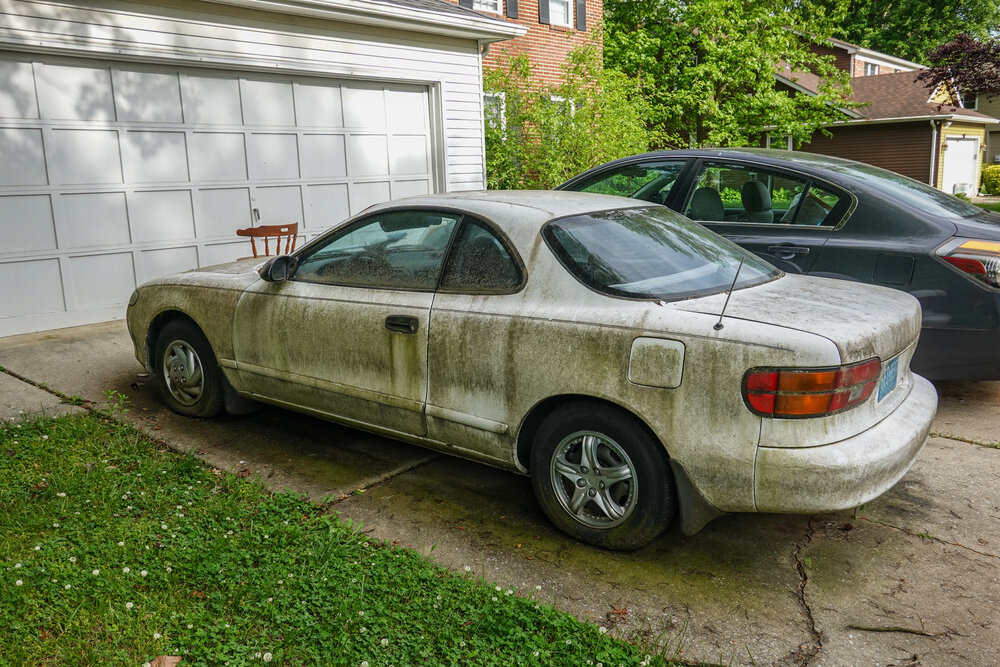The Financial and Environmental Benefits of Reusing Junk Cars And Trucks
Recycling junk cars presents countless economic and environmental advantages that extend well beyond waste decrease. By recovering approximately 90% of car components, this practice substantially decreases landfill burden while protecting essential natural sources. In addition, it cuts down on energy use and greenhouse gas emissions linked to basic material removal and production. The process likewise produces work opportunities across different sectors, from dismantling to logistics, and offers consumers with cost-effective automobile components. These benefits underscore the multifaceted value of recycling junk automobiles, yet there are better aspects to consider when examining its complete effect.
Decreasing Landfill Waste
Minimizing landfill waste through the recycling of junk vehicles plays a pivotal duty in ecological conservation. Efficient reusing procedures can considerably lower the volume of waste that ends up in land fills when vehicles reach the end of their life cycle. Scrap cars, if not properly reused, add to the growing issue of land fill overcapacity, worsening ecological deterioration and potentially polluting dirt and groundwater with dangerous materials such as oil, gas, and heavy steels.

Furthermore, the recycling process alleviates the damaging effects of auto waste on biodiversity. Landfills are notorious for interrupting regional ecological communities, and reducing the influx of scrap vehicles assists protect all-natural environments. Inevitably, reusing junk vehicles is a calculated technique that fosters sustainable waste administration, lining up with wider ecological objectives.
Conserving Natural Resources
In enhancement to mitigating land fill overcapacity, recycling junk automobiles plays a considerable function in conserving all-natural sources. The automobile market is heavily reliant on various steels, plastics, and various other products that need comprehensive mining and processing. By recycling scrap cars, we significantly reduce the need for raw products, consequently curbing the environmental degradation connected with mining tasks. Recycling steel from old lorries lowers the requirement for iron ore extraction, which in turn lowers power usage and greenhouse gas emissions.
In addition, the process of recycling car parts such as lead, aluminum, and copper is far less energy-intensive than creating these products from virgin sources. This power savings equates straight right into reduced fossil gas consumption and lower carbon impacts (sell my junk car today). Furthermore, by redeeming and repurposing products, we expand the lifecycle of non-renewable sources, ensuring they continue to be offered for future usage
Additionally, reusing automotive fluids like oil, antifreeze, and transmission fluid stops unsafe substances from infecting dirt and water sources. Through methodical reusing initiatives, these liquids can be detoxified and recycled, advertising a circular economic climate and more diminishing the strain on natural deposits. Therefore, reusing junk cars and trucks supplies a multifaceted approach to conserving our earth's indispensable all-natural possessions.
Producing Task Opportunities
The recycling of scrap autos not only profits the atmosphere but additionally promotes economic development by producing task possibilities. This growing industry supplies a broad array of work potential customers, ranging from the first collection and transport of old cars to the intricate procedures of dismantling, arranging, and repurposing the various parts.

The expansion of recycling plants additionally magnifies the work market, necessitating roles such see as designers, machine drivers, and quality assurance professionals to take care of the innovative machinery and guarantee conformity with ecological laws. Even administrative positions, such as sales, marketing, and customer care, see a rise as the sector broadens.
Reducing Production Prices
By integrating recycled products from junk cars, producers can dramatically lower production expenses. The energy needed to refine recycled materials is substantially less than that required to create new products from scrape.
Moreover, the recycling process aids improve the supply chain by supplying a consistent increase of materials that are conveniently available and often less costly than newly mined sources. These price effectiveness are especially essential in a very affordable industry like automobile production, where margins can be razor-thin. In addition, the recycling of scrap automobiles aids minimize the volatile pricing of basic materials, enabling producers to better projection and regulate their manufacturing budgets.
Supplying Budget Friendly Automobile Components
When scrap autos are recycled, the availability of economical automobile components considerably boosts, profiting both consumers and repair service shops. Recycled car parts are often cost a portion of the price of repairs, providing an economical choice for lorry owners and auto mechanics. This cost can be essential for individuals that might not have the economic means to purchase new parts, enabling them to keep their automobiles in secure and functional condition.
Repair stores also get from this boosted accessibility of cost effective parts. By sourcing recycled elements, these companies can lower their functional prices, which can be handed down to consumers with lower service charges. This, consequently, can bring about greater client contentment and loyalty, as customers appreciate the cost savings without jeopardizing on high quality.
Moreover, the top quality of recycled parts has actually improved dramatically over the years, many thanks to developments in reusing procedures and quality control measures. Many recycled parts undertake extensive testing to ensure they fulfill industry requirements, providing reliability similar to repairs - cash for cars denver. By supplying a economically feasible and top quality choice, the recycling of junk vehicles plays a critical function in sustaining go to my blog both the automobile repair market and the wider customer market
Verdict
Reusing scrap cars presents considerable economic and environmental benefits by dramatically minimizing land fill waste and saving all-natural resources. Overall, the recycling of junk vehicles supports both economic growth and sustainability objectives.
Reusing scrap autos presents countless financial and ecological advantages that extend well past waste decrease. Junk vehicles, if not correctly reused, contribute to the expanding trouble of landfill overcapacity, intensifying ecological deterioration and possibly contaminating dirt and groundwater with hazardous substances such as oil, gas, and heavy steels.
By recycling junk cars and trucks, we substantially minimize the demand for raw products, thus curbing the ecological destruction linked with mining tasks.When junk cars are recycled, the schedule of inexpensive automobile parts considerably increases, benefiting both customers and repair service stores.Reusing junk vehicles offers substantial economic and ecological advantages by substantially decreasing land fill waste and conserving all-natural resources.